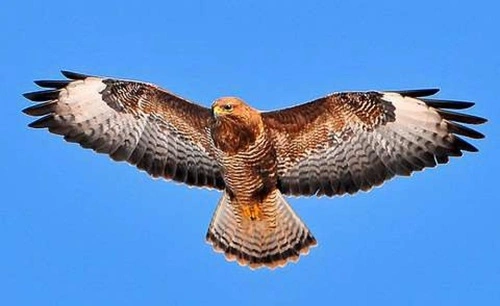Yes, it is illegal to shoot a buzzard in the United States. Buzzards, often referred to as vultures in North America, are protected under the Migratory Bird Treaty Act (MBTA). This federal law prohibits the hunting, capturing, or killing of migratory birds without explicit authorization. Violating these protections can result in severe penalties, including fines and imprisonment.
Federal Protection Under the Migratory Bird Treaty Act (MBTA)
1. Overview of the MBTA
- The MBTA, enacted in 1918, protects over 1,000 bird species, including buzzards such as the turkey vulture (Cathartes aura) and the black vulture (Coragyps atratus).
- The Act makes it unlawful to harm these birds, their eggs, nests, or feathers without a permit.
2. Purpose of Protection
- Buzzards play a critical role in ecosystems as scavengers, cleaning up carrion and preventing the spread of diseases. Their protection under the MBTA reflects their ecological importance.
3. Permits for Control
- Killing or removing buzzards is only permitted under special circumstances, such as threats to human safety or property. In such cases, individuals must obtain a depredation permit from the U.S. Fish and Wildlife Service (USFWS).
Legal Consequences for Shooting a Buzzard
1. Fines and Civil Penalties
- Violations of the MBTA can result in fines of up to $5,000 per offense for individuals. Organizations face even higher penalties.
- Each bird harmed or killed is treated as a separate violation, compounding the fines.
2. Criminal Charges
- Intentional violations may lead to misdemeanor charges, punishable by up to six months in jail. In severe cases, felony charges may apply.
3. Restitution and Civil Lawsuits
- Environmental organizations or government agencies may seek restitution for harm to protected species.
Exceptions and Permits for Buzzard Control
While it is illegal to shoot buzzards without a permit, exceptions exist for managing problematic populations:
1. Depredation Permits
- Issued by the USFWS, depredation permits allow for the removal of buzzards when they pose a significant threat to livestock, property, or human safety.
- These permits are granted only after non-lethal measures, such as deterrents, have proven ineffective.
2. Threats to Livestock and Property
- Black vultures, in particular, are known to attack newborn livestock. Farmers may apply for a permit to manage these threats legally.
3. Scientific and Educational Use
- Permits may also be issued for research, conservation, or educational purposes involving buzzards.
Non-Lethal Alternatives for Buzzard Management
1. Deterrents
- Using loud noises, reflective objects, or predator decoys can discourage buzzards from roosting on properties.
2. Habitat Modification
- Removing potential roosting sites, such as tall trees or abandoned structures, can reduce buzzard activity.
3. Exclusion Techniques
- Installing netting or other barriers can prevent buzzards from accessing specific areas.
Importance of Buzzards in the Ecosystem
1. Natural Cleanup Crew
- Buzzards consume carrion, helping to prevent the spread of diseases and maintaining ecological balance.
2. Indicator Species
- The presence of buzzards often indicates a healthy environment, as they rely on natural ecosystems to find food.
Related FAQs
Q1. Why are buzzards protected under federal law?
Ans: Buzzards are protected under the MBTA because of their ecological importance as scavengers and their status as migratory birds.
Q2. Can I shoot a buzzard if it is harming my livestock?
Ans: No, not without a depredation permit from the USFWS. Killing a buzzard without authorization is illegal.
Q3. What happens if I accidentally kill a buzzard?
Ans: Accidental killing of a buzzard can still result in penalties under the MBTA. The circumstances may influence the severity of enforcement actions.
Q4. How can I obtain a depredation permit for buzzard control?
Ans: Contact the U.S. Fish and Wildlife Service to apply for a permit. Be prepared to demonstrate that non-lethal methods have been ineffective.
Q5. Are there state laws protecting buzzards in addition to federal laws?
Ans: Yes, many states have additional wildlife protection laws that complement the MBTA, further restricting the harm or killing of buzzards.
Conclusion
Shooting a buzzard is illegal in the U.S. under the Migratory Bird Treaty Act unless authorized by a depredation permit. These birds are vital to the ecosystem, and their protection ensures the maintenance of ecological balance. For those facing issues with buzzards, non-lethal alternatives and proper permits provide lawful solutions to manage their presence while complying with federal regulations.


